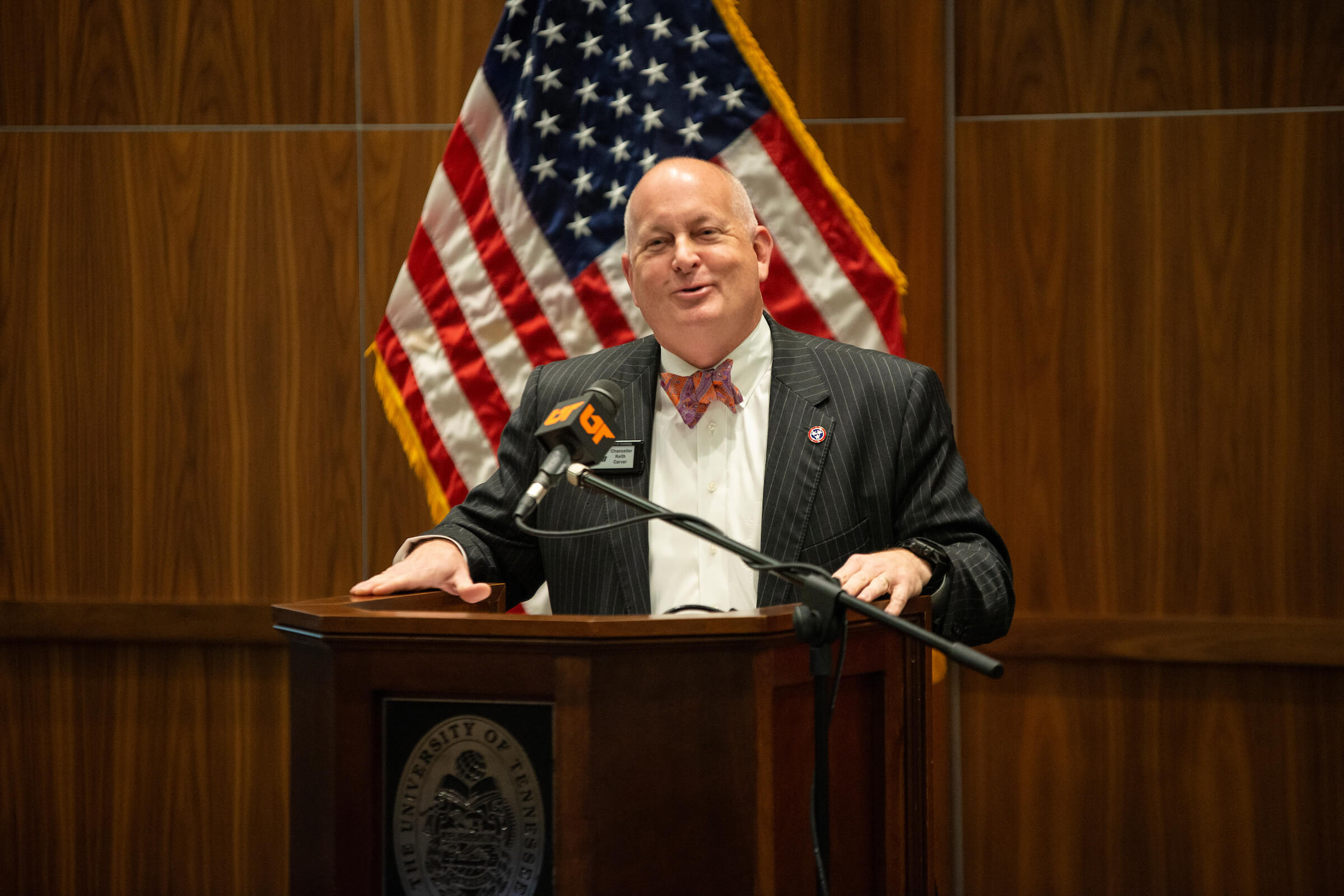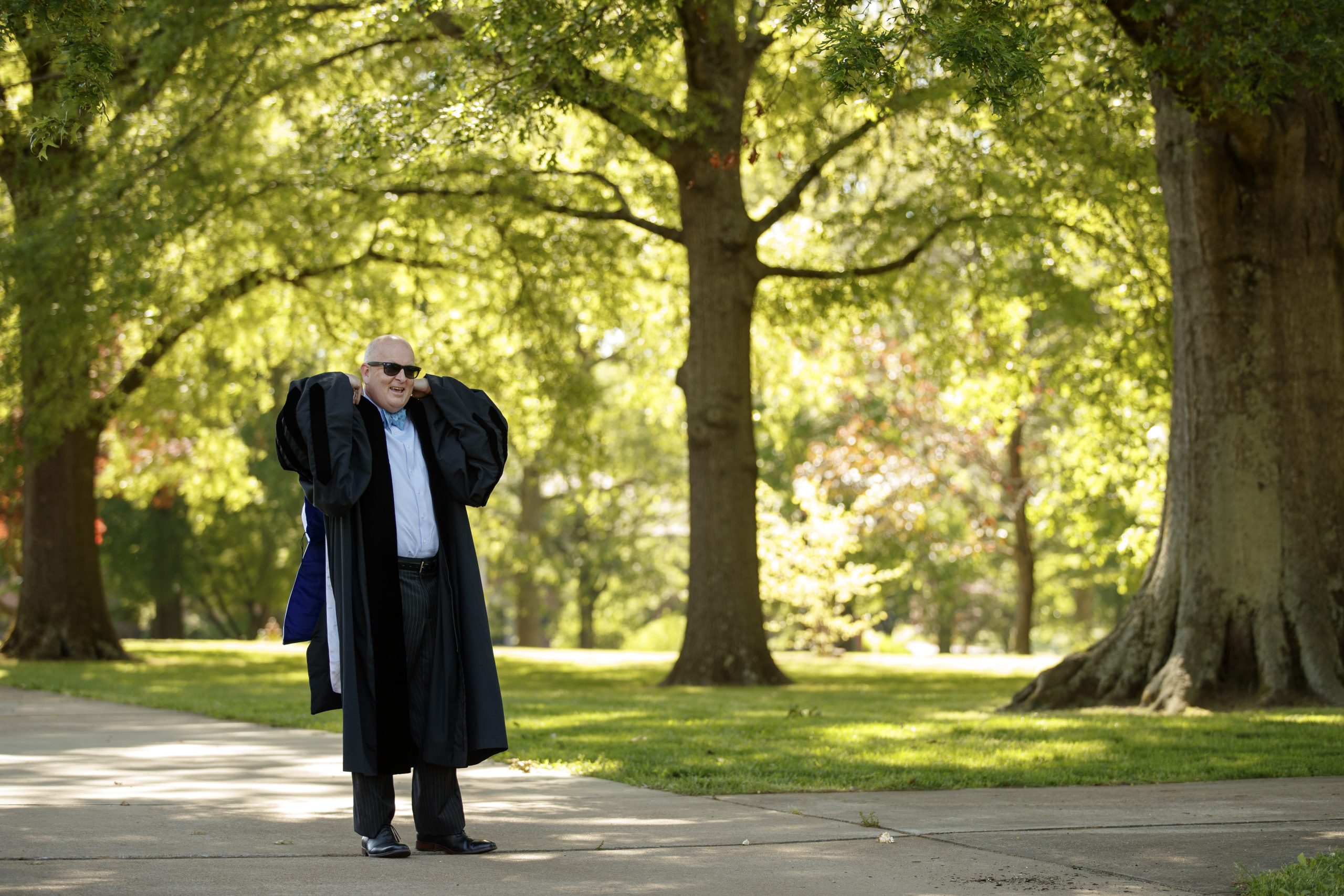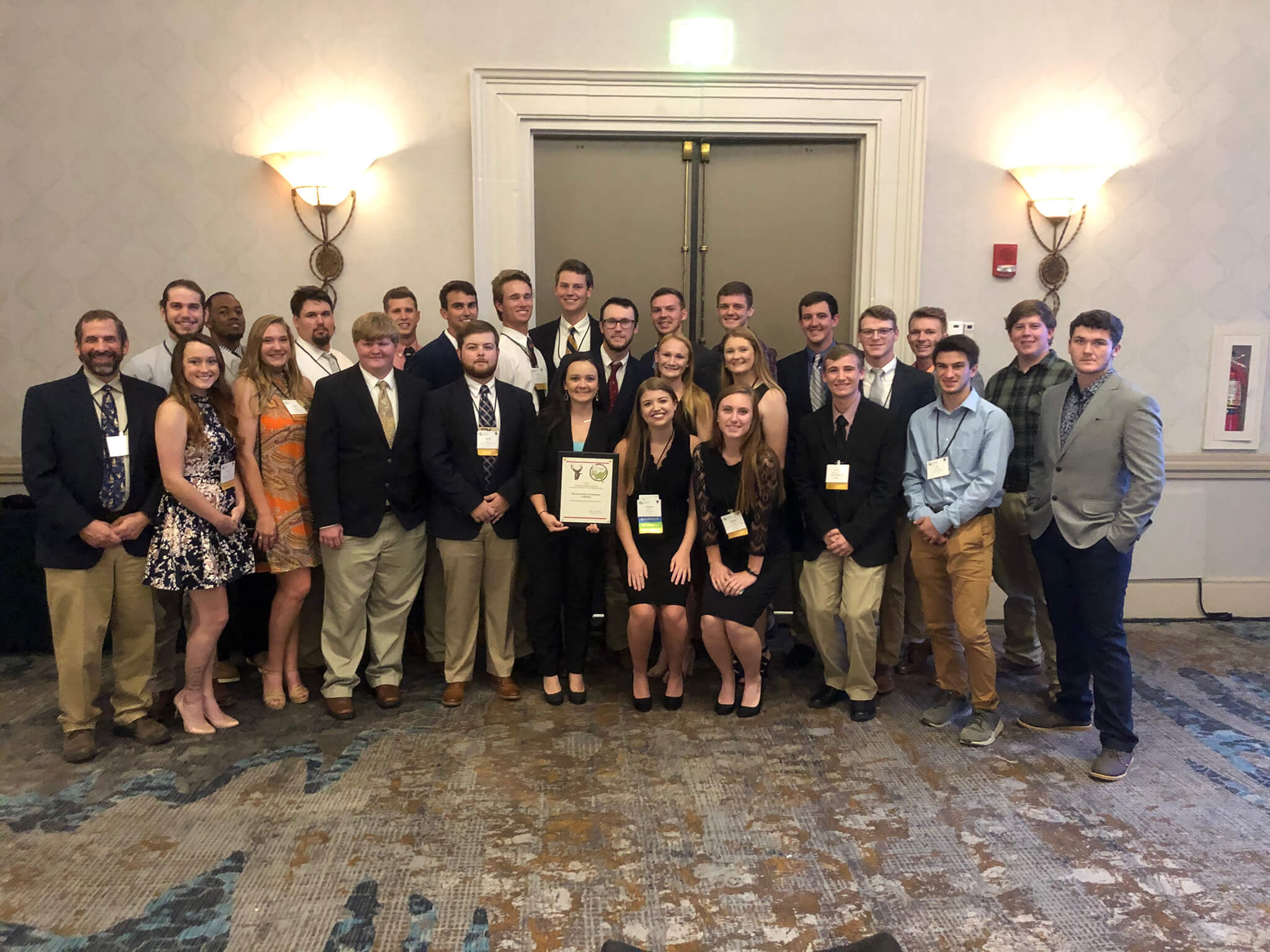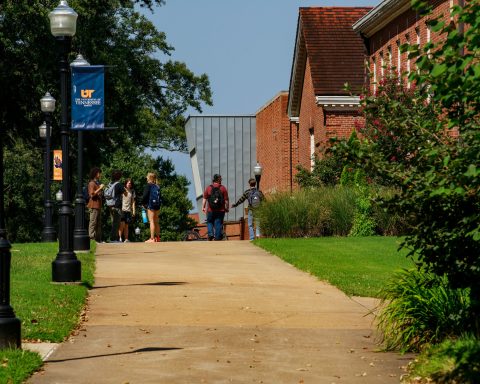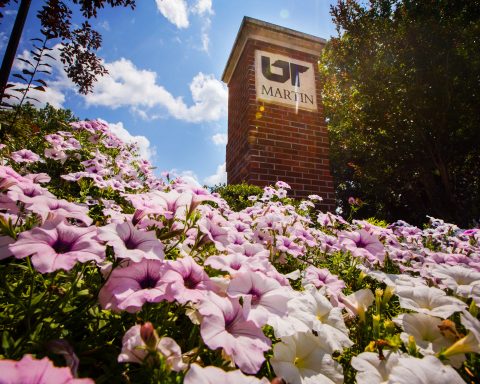The University of Tennessee Board of Trustees met Nov. 8 in Knoxville for its annual fall session. UT Martin Chancellor Keith Carver presented details on the university’s strategic enrollment plan during a separate meeting of the board’s finance and administration committee.
Carver’s presentation included information about the addition of three new university positions: a bilingual recruiter, a financial aid director and a university videographer to assist with marketing to a broader section of the region’s potential students. UT Martin is currently working with Ruffalo Noel Levitz, an international leader in higher education enrollment and fundraising research, to develop a five-year enrollment plan.
In other board news, UT Interim President Randy Boyd informed trustees that work to reunify UT Knoxville and the UT Institute of Agriculture continues, as does planning for the creation of the Oak Ridge Institute. During the annual meeting in June, trustees approved both initiatives and requested progress reports be presented during the fall meeting. These initiatives seek to increase collaboration and to raise UT in national rankings.
Boyd said the UT Institute of Agriculture and UT Knoxville Land-grant Reunification Team hosted 39 listening sessions within the university and throughout the state. They also shared a survey with more than 5,000 individuals to collect additional data. The team compiled what they heard and the survey results into a report submitted to Boyd, UT Knoxville Chancellor Donde Plowman and Senior Vice President/Senior Vice Chancellor Tim Cross.
“We have more great ideas than we can incorporate in the next five years,” Boyd said. “Now we need to prioritize them.”
After reviewing the report, Plowman and Cross are addressing UTIA funding issues and needs, resolving parking and transit issues and involving UT Institute of Agriculture in the UT Knoxville Strategic Visioning process. Boyd also created the UT Commission on Agriculture to help UT leaders hear directly from people, communities and industries involved in agriculture in order to better serve them.
“There are things that we can do now to make UT Institute of Agriculture and UT Knoxville stronger,” Boyd said.
Boyd also updated trustees on the ongoing plans for the Oak Ridge Institute. The institute seeks to capitalize on UT and Oak Ridge National Laboratory’s long-standing partnership by recruiting 60 new UT researchers and 60 new ORNL scientists. It would grow the collaborative Ph.D. program to 500 students and would have a goal of attracting more than $150 million in researching funding.
“If we accomplish this, it would make UT a top 30 public research institution and lead to enhanced economic development opportunities for the region,” Boyd said. “I think 10 years from now this will be one of the biggest impacts that we could make.”
A 14-person steering committee with representation from both UT and ORNL has held information sessions and developed foundational principals and a system of accountability to make sure the institute’s long-term goals will be met. Boyd said the committee will deliver its official recommendations by Dec. 31.
Boyd also informed trustees of positive momentum across the UT System, including exceeding Tennessee’s goals for bachelor’s degrees awarded by almost 450 degrees. UT awarded more than 12,000 degrees in 2018-19. More than 51,000 students are enrolled at UT campuses this fall, which includes increased freshman enrollment of 0.7 percent at UT Knoxville, 2.4 percent at Chattanooga and 1.5 percent at UT Martin. UT Knoxville saw an overall enrollment increase of 2 percent and UT Martin had an increase of 3.3 percent.
“Student debt remains lower than our peers, and 46 percent of our students graduate from a UT institution without debt,” he said continuing to share the university’s good news.
These overall percentages could increase with the introduction of UT Promise. UT Promise, which begins in fall of 2020, is a last-dollar scholarship program that guarantees free tuition and mandatory fees after other financial aid is received (such as Pell Grants, HOPE Scholarship or other institutional scholarships) for qualifying Tennessee undergraduate students who have a family household income of less than $50,000 annually. The program will be available at UT Knoxville, UT Chattanooga, UT Martin and the UT Health Science Center. Boyd toured the state in September and October, visiting 14 high schools and encouraging students there to apply to UT schools and for the UT Promise scholarship. More than 2,800 potential full-time freshmen have applied for the scholarship along with more than 500 current students from the four UT campuses.
In his comments to the board and audience, Board Chair John Compton reflected on the past year since the UT Board was reconstituted in 2018 under the UT FOCUS act. From listening to students, alumni, faculty, legislators and even neighbors to selecting an interim president, Compton said it has been a good first year.
“Singularly the best accomplishment is having Randy Boyd serve as interim president,” Compton said. “As a board, we will make few decisions that really matter. This is one that we will look back on that mattered.”
Additional board approvals can be found at tennessee.edu.
###

